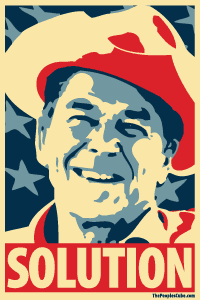By Jack Curtis | May 7, 2012 | American Thinker
Governments around the world are in various stages of financial failure, all seemingly trying to be Argentina. Curious, no? Look at debt and deficits; you see government spending issues; most of the few exceptions have other problems. Look then at global migration patterns showing people leaving poor places for places going broke, an unhappy trend line. Look anywhere; we can’t seem to govern ourselves worldwide, while people protesting are multiplying everywhere.
The U.S. and the EU can’t stop borrowing and spending, though no one can expect their stultified economies to bear the debt they’ve run up. Arab riots and civil wars reflect those countries’ corrupt dictators’ inability to sufficiently subsidize the citizens. Armed insurrections and massive demonstrations plague Russia, India, China, and Latin America; Africa has more than its share of failed and failing states. The Global Incident Map shows worldwide terrorism and both underlines instability and helps explain the migrations. Predictable civil order seems lost.
For “rich” Europe and North America, it’s the famous doom of all democracies: the citizens have learned to vote others’ wealth to themselves via a devil’s compact with demagogues. Once in place, such deals can’t be controlled (Who’s re-elected for shutting off the goodies?) until they outrun available resources and impoverish the economy. “Kick the can down the road” (meaning past the next election) is the U.S. mantra for postponing the end-game; in the EU, it’s quasi-austerity. It’s the same game in both places: Save the Banks. The people? Let them eat cake…
For everybody outside the rich world, it’s the same thing at one remove. That rich world has been such an engine of the world economy that most of the rest are, in varying degrees, dependents. When the rich customer cuts back, the dependent suffers. For those living hand-to-mouth in the first place, the suffering is worse; that puts those governments at more immediate risk. If we really look, much post-WWII stability has been a wire-walking façade.
Civilization: a state of social culture characterized by relative progress in the arts, science, and statecraft. Start with the Babylonians; the picture is later expanded by the multicultural Romans (equal opportunity conquerors) and expanded again by the widely differing but integrated Europeans, Indians, and Chinese. Perhaps it’s time we recognized an additional element in the mix that now defines civilization: technology.
Modern transport, communication, and information technology have linked the whole planet into a functional unity irrespective of language, culture, religion, or other differences. Whether very poor or wealthy, educated or illiterate, nearly everybody on earth is in reach of a network of information and services via a common, worldwide technology. The only obvious threats to that lie with paranoid governments insistent on controlling it and various Luddites intent on its destruction to preserve interests under threat.
Such miracles, like free lunches, carry costs. One cost of the world’s economic integration: a cold in the rich world quickly produces sneezes everywhere else, an unsung partner of things like just-in-time inventory control. Another cost is the greater awareness of events and conditions everywhere. The whole world knows at once of riots anywhere; if cell phones organize the rioters, the world knows that, too. And how a local dictator reacts will appear quickly on YouTube, with any blood in full color. Poorly informed people are becoming much more knowledgeable and sophisticated, seeing how others live, and developing greater expectations that their governments aren’t prepared to accommodate. As citizens’ expectations rise, governments facing them before a world audience find their control of events affected, more so when such strategic interests as oil are involved. An event anywhere can light a fire under a planetary pot; the technology that spreads civilization also expands risk.
When considering political collapse, we look for the signature social meltdown; a strong civilization may work through bad finances. Before they’re swept from history’s stage, civilizations rot from inside. What do we see?
Western civilization was the Judeo-Christian replacement for failed Classical Europe. Its centrality was the general acceptance of Christian morality, built on widespread religious belief and embedded in governments and law. In what’s being called a post-Christian era, that’s dissolving; Western citizens are struggling with each other over such basics as human rights, obligations, behavior, and the value of human life.
Read the full article here.
Related Articles
- Europe’s Right in Disarray (spectator.org)
- ‘We Are Preparing For Massive Civil War’ Says DHS Informant (johnmalcolm.me)
- Catholic Bishops Ask For Civil Disobedience (minx.cc)
- DHS Preparing for massive Civil War/Civil Disruption. (diogenesfreeholder.wordpress.com)
- Cameron’s ‘Big Society failing’ (itv.com)
- UK Society ‘Post-Christian’? (frstephensmuts.wordpress.com)
- An eye for an eye? (wnd.com)
- In a Rich Man’s World: Reducing Government Spending (theconservativeidealist.com)
- A Hidden Truth ? (audymm.wordpress.com)
- Geert Wilders:NYC address 4/30/12 (iranaware.com)
- New must-read book: Lessons From Fallen Civilizations (theblaze.com)
- A Different Philosophy of Civil Disobedience (truth11.com)









